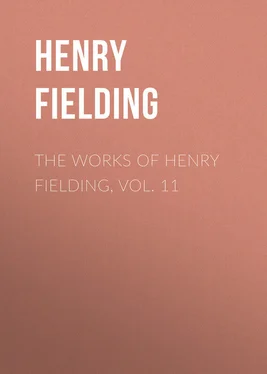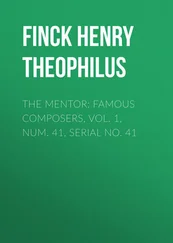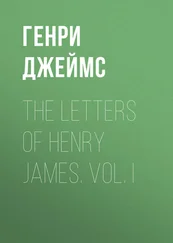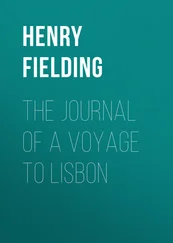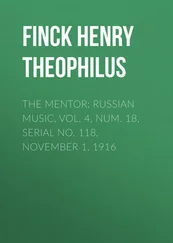Henry Fielding - The Works of Henry Fielding, vol. 11
Здесь есть возможность читать онлайн «Henry Fielding - The Works of Henry Fielding, vol. 11» — ознакомительный отрывок электронной книги совершенно бесплатно, а после прочтения отрывка купить полную версию. В некоторых случаях можно слушать аудио, скачать через торрент в формате fb2 и присутствует краткое содержание. Жанр: foreign_antique, foreign_prose, foreign_sf, на английском языке. Описание произведения, (предисловие) а так же отзывы посетителей доступны на портале библиотеки ЛибКат.
- Название:The Works of Henry Fielding, vol. 11
- Автор:
- Жанр:
- Год:неизвестен
- ISBN:нет данных
- Рейтинг книги:4 / 5. Голосов: 1
-
Избранное:Добавить в избранное
- Отзывы:
-
Ваша оценка:
- 80
- 1
- 2
- 3
- 4
- 5
The Works of Henry Fielding, vol. 11: краткое содержание, описание и аннотация
Предлагаем к чтению аннотацию, описание, краткое содержание или предисловие (зависит от того, что написал сам автор книги «The Works of Henry Fielding, vol. 11»). Если вы не нашли необходимую информацию о книге — напишите в комментариях, мы постараемся отыскать её.
The Works of Henry Fielding, vol. 11 — читать онлайн ознакомительный отрывок
Ниже представлен текст книги, разбитый по страницам. Система сохранения места последней прочитанной страницы, позволяет с удобством читать онлайн бесплатно книгу «The Works of Henry Fielding, vol. 11», без необходимости каждый раз заново искать на чём Вы остановились. Поставьте закладку, и сможете в любой момент перейти на страницу, на которой закончили чтение.
Интервал:
Закладка:
It is to the same kindness that I owe the opportunity of presenting the reader with something indisputably Fielding’s and very characteristic of him, which Murphy did not print, and which has not, so far as I know, ever appeared either in a collection or a selection of Fielding’s work. After the success of David Simple , Fielding gave his sister, for whom he had already written a preface to that novel, another preface for a set of Familiar Letters between the characters of David Simple and others. This preface Murphy reprinted; but he either did not notice, or did not choose to attend to, a note towards the end of the book attributing certain of the letters to the author of the preface, the attribution being accompanied by an agreeably warm and sisterly denunciation of those who ascribed to Fielding matter unworthy of him. From these the letter which I have chosen, describing a row on the Thames, seems to me not only characteristic, but, like all this miscellaneous work, interesting no less for its weakness than for its strength. In hardly any other instance known to me can we trace so clearly the influence of a suitable medium and form on the genius of the artist. There are some writers – Dryden is perhaps the greatest of them – to whom form and medium seem almost indifferent, their all-round craftsmanship being such that they can turn any kind and every style to their purpose. There are others, of whom I think our present author is the chief, who are never really at home but in one kind. In Fielding’s case that kind was narrative of a peculiar sort, half-sentimental, half-satirical, and almost wholly sympathetic – narrative which has the singular gift of portraying the liveliest character and yet of admitting the widest digression and soliloquy.
Until comparatively late in his too short life, when he found this special path of his (and it is impossible to say whether the actual finding was in the case of Jonathan or in the case of Joseph ), he did but flounder and slip. When he had found it, and was content to walk in it, he strode with as sure and steady a step as any other, even the greatest, of those who carry and hand on the torch of literature through the ages. But it is impossible to derive full satisfaction from his feats in this part of the race without some notion of his performances elsewhere; and I believe that such a notion will be supplied to the readers of his novels by the following volumes, in a very large number of cases, for the first time.
INTRODUCTION
WHETHER the ensuing pages were really the dream or vision of some very pious and holy person; or whether they were really written in the other world, and sent back to this, which is the opinion of many (though I think too much inclining to superstition); or lastly, whether, as infinitely the greatest part imagine, they were really the production of some choice inhabitant of New Bethlehem, is not necessary nor easy to determine. It will be abundantly sufficient if I give the reader an account by what means they came into my possession.
Mr Robert Powney, stationer, who dwells opposite to Catherine-street in the Strand, a very honest man and of great gravity of countenance; who, among other excellent stationary commodities, is particularly eminent for his pens, which I am abundantly bound to acknowledge, as I owe to their peculiar goodness that my manuscripts have by any means been legible: this gentleman, I say, furnished me some time since with a bundle of those pens, wrapped up with great care and caution, in a very large sheet of paper full of characters, written as it seemed in a very bad hand. Now, I have a surprising curiosity to read everything which is almost illegible; partly perhaps from the sweet remembrance of the dear Scrawls, Skrawls, or Skrales (for the word is variously spelt), which I have in my youth received from that lovely part of the creation for which I have the tenderest regard; and partly from that temper of mind which makes men set an immense value on old manuscripts so effaced, bustoes so maimed, and pictures so black that no one can tell what to make of them. I therefore perused this sheet with wonderful application, and in about a day’s time discovered that I could not understand it. I immediately repaired to Mr Powney, and inquired very eagerly whether he had not more of the same manuscript? He produced about one hundred pages, acquainting me that he had saved no more; but that the book was originally a huge folio, had been left in his garret by a gentleman who lodged there, and who had left him no other satisfaction for nine months’ lodging. He proceeded to inform me that the manuscript had been hawked about (as he phrased it) among all the booksellers, who refused to meddle; some alledged that they could not read, others that they could not understand it. Some would have it to be an atheistical book, and some that it was a libel on the government; for one or other of which reasons they all refused to print it. That it had been likewise shewn to the R – l Society, but they shook their heads, saying, there was nothing in it wonderful enough for them. That, hearing the gentleman was gone to the West-Indies, and believing it to be good for nothing else, he had used it as waste paper. He said I was welcome to what remained, and he was heartily sorry for what was missing, as I seemed to set some value on it.
I desired him much to name a price: but he would receive no consideration farther than the payment of a small bill I owed him, which at that time he said he looked on as so much money given him.
I presently communicated this manuscript to my friend parson Abraham Adams, who, after a long and careful perusal, returned it me with his opinion that there was more in it than at first appeared; that the author seemed not entirely unacquainted with the writings of Plato; but he wished he had quoted him sometimes in his margin, that I might be sure (said he) he had read him in the original: for nothing, continued the parson, is commoner than for men now-a-days to pretend to have read Greek authors, who have met with them only in translations, and cannot conjugate a verb in mi .
To deliver my own sentiments on the occasion, I think the author discovers a philosophical turn of thinking, with some little knowledge of the world, and no very inadequate value of it. There are some indeed who, from the vivacity of their temper and the happiness of their station, are willing to consider its blessings as more substantial, and the whole to be a scene of more consequence than it is here represented: but, without controverting their opinions at present, the number of wise and good men who have thought with our author are sufficient to keep him in countenance: nor can this be attended with any ill inference, since he everywhere teaches this moral: That the greatest and truest happiness which this world affords, is to be found only in the possession of goodness and virtue; a doctrine which, as it is undoubtedly true, so hath it so noble and practical a tendency, that it can never be too often or too strongly inculcated on the minds of men.
BOOK I
Chapter i
ON the first day of December 1741 1 1 Some doubt whether this should not be rather 1641, which is a date more agreeable to the account given of it in the introduction: but then there are some passages which seem to relate to transactions infinitely later, even within this year or two. To say the truth there are difficulties attending either conjecture; so the reader may take which he pleases
I departed this life at my lodgings in Cheapside. My body had been some time dead before I was at liberty to quit it, lest it should by any accident return to life: this is an injunction imposed on all souls by the eternal law of fate, to prevent the inconveniences which would follow. As soon as the destined period was expired (being no longer than till the body is become perfectly cold and stiff) I began to move; but found myself under a difficulty of making my escape, for the mouth or door was shut, so that it was impossible for me to go out at it; and the windows, vulgarly called the eyes, were so closely pulled down by the fingers of a nurse, that I could by no means open them. At last I perceived a beam of light glimmering at the top of the house (for such I may call the body I had been inclosed in), whither ascending, I gently let myself down through a kind of chimney, and issued out at the nostrils.
Интервал:
Закладка:
Похожие книги на «The Works of Henry Fielding, vol. 11»
Представляем Вашему вниманию похожие книги на «The Works of Henry Fielding, vol. 11» списком для выбора. Мы отобрали схожую по названию и смыслу литературу в надежде предоставить читателям больше вариантов отыскать новые, интересные, ещё непрочитанные произведения.
Обсуждение, отзывы о книге «The Works of Henry Fielding, vol. 11» и просто собственные мнения читателей. Оставьте ваши комментарии, напишите, что Вы думаете о произведении, его смысле или главных героях. Укажите что конкретно понравилось, а что нет, и почему Вы так считаете.
